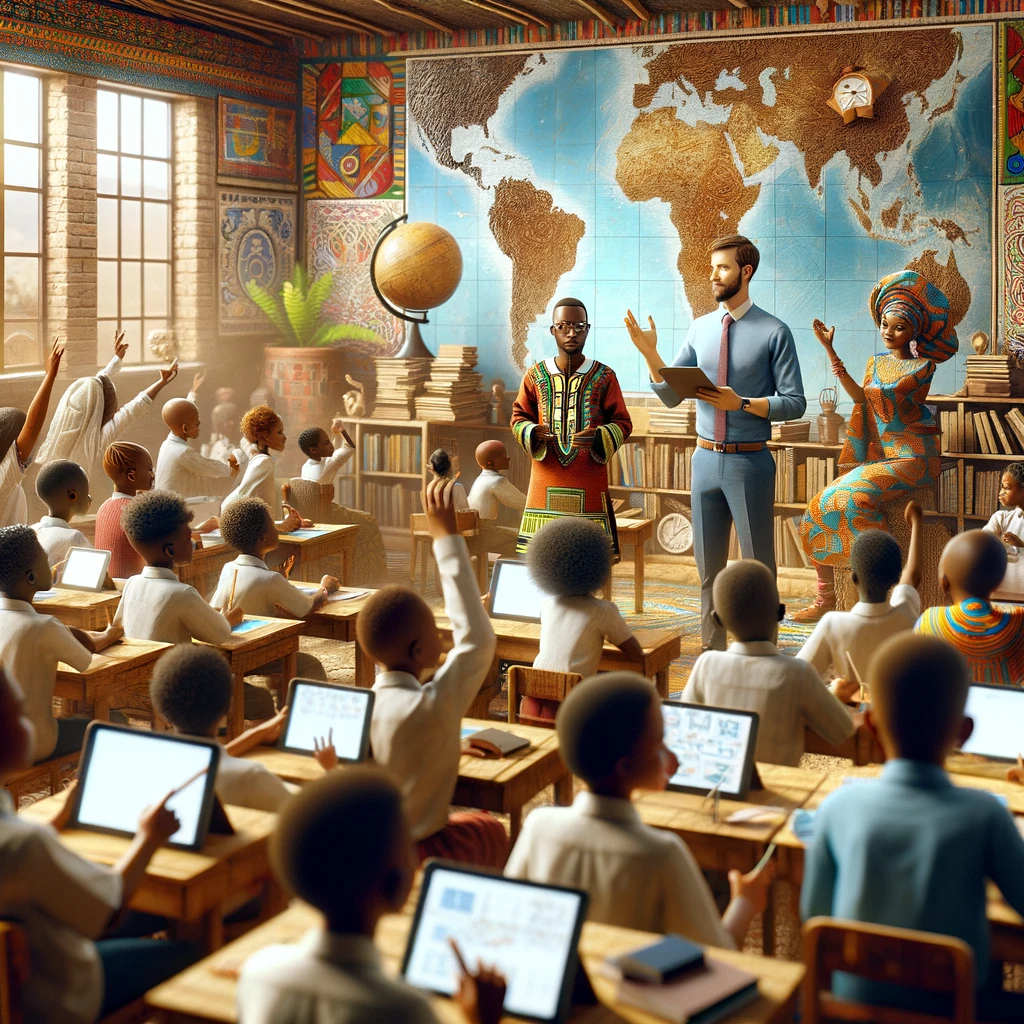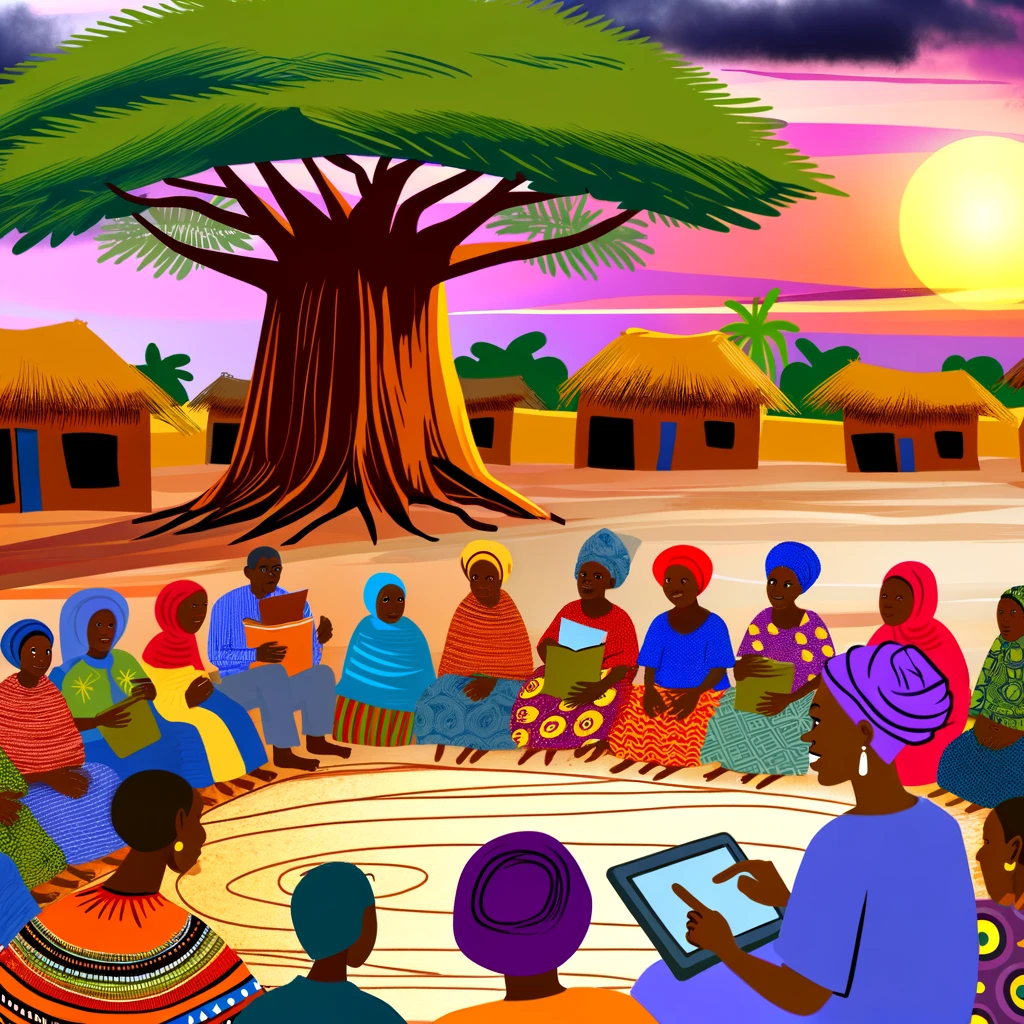Embracing Change: Cultivating the Teacher Mindset in the African Diaspora
- Ango Fomuso Ekellem

- May 3, 2024
- 3 min read
The audio version here!
In the rich tapestry of African cultures, education holds a revered place, symbolizing a bridge to personal growth and community development. Yet, this noble pursuit often encounters formidable barriers—some visible, others insidious—stemming from deep-rooted societal norms, economic challenges, and shifting global dynamics. These barriers are not unique to the African continent; they resonate deeply within the African diaspora, reflecting a universal struggle between tradition and innovation, scarcity and abundance, fixedness and growth. Here, we delve into the essence of the "teacher mindset" and explore pathways to nurture this perspective, both within Africa and among its global diaspora.
The Crux of the Teacher Mindset
At its core, the teacher mindset embodies a zeal for lifelong learning, a willingness to embrace new ideas, and a commitment to disseminate knowledge. It thrives on curiosity, resilience, and the belief that education is not merely a transfer of information but a transformative process that shapes individuals and societies. However, achieving this mindset requires navigating a labyrinth of societal expectations, economic realities, and entrenched beliefs.
Challenges to the Teacher Mindset
Traditional Hierarchies vs. Innovative Dynamics
In many African societies, respect for age and experience forms the bedrock of social order. While this reverence fosters a sense of continuity and belonging, it can also create an environment where new ideas and methods are viewed with skepticism, especially when proposed by the younger generation or those challenging conventional wisdom.
The Individual vs. The Collective
A prevailing focus on individual success, often driven by economic scarcity, can lead to a competitive mindset where knowledge is hoarded rather than shared. This scenario pits personal achievement against communal progress, overshadowing the potential for collective uplift through shared educational endeavors.
Fixed Mindsets and Growth Opportunities
The dichotomy between fixed and growth mindsets—where the former views intelligence as static and the latter sees it as expandable through effort—plays a crucial role in educational outcomes. Societies that valorize innate talent over hard work, or that stigmatize failure, inadvertently foster environments where the teacher mindset struggles to take root.
Navigating Misinformation and Resistance to Change
Resistance to change is a universal phenomenon, but it is particularly potent when fueled by misinformation and propaganda. These forces can undermine educational reforms and initiatives, placing educators in the crosshairs of battles over cultural identity and power dynamics.
Pathways to Empowerment
Fostering Community Engagement
True educational transformation begins at the grassroots level, through initiatives that are deeply embedded in local contexts and developed in collaboration with community members. This approach ensures that educational reforms are not viewed as external impositions but as enhancements to the community's own narrative.
Celebrating Resilience and Growth
Adopting educational policies that valorize effort, resilience, and the process of learning can significantly shift the cultural perception towards a growth mindset. Recognizing and rewarding perseverance, rather than just outcomes, paves the way for a more inclusive and dynamic educational landscape.
Harnessing Digital Platforms
In an era where information is at our fingertips, leveraging technology to democratize education offers unprecedented opportunities to challenge misinformation and broaden access to knowledge. Digital tools can serve as powerful allies in spreading a culture of learning and openness, connecting the African diaspora with the continent in meaningful, transformative ways.
Investing in Educators
The role of educators—be they teachers, mentors, or community leaders—is pivotal. Providing them with the tools, training, and support to navigate the complexities of their role is essential. Professional development that focuses on engaging communities, integrating technology, and fostering a growth mindset among students can catalyze significant change.
A Call to Action
The journey toward fully embracing the teacher mindset, particularly within the African diaspora, is fraught with challenges but also rich with opportunity. It calls for a reevaluation of our values and strategies, urging us to consider how we can collectively foster an environment where education serves as a beacon of hope, innovation, and unity.
In navigating this path, we must be patient, empathetic, and creative, recognizing that the goal is not to dismantle traditional structures but to weave new ideas into the fabric of our societies in a way that respects and enriches our cultural heritage. By doing so, we open up a world of possibilities for individual and collective growth, ensuring that the teacher mindset is not just a concept but a living, breathing reality in the African diaspora and beyond.
Growth Mindset simply means not being satisfied with what we already know, but engaging and being open to continuous learning!












Comments